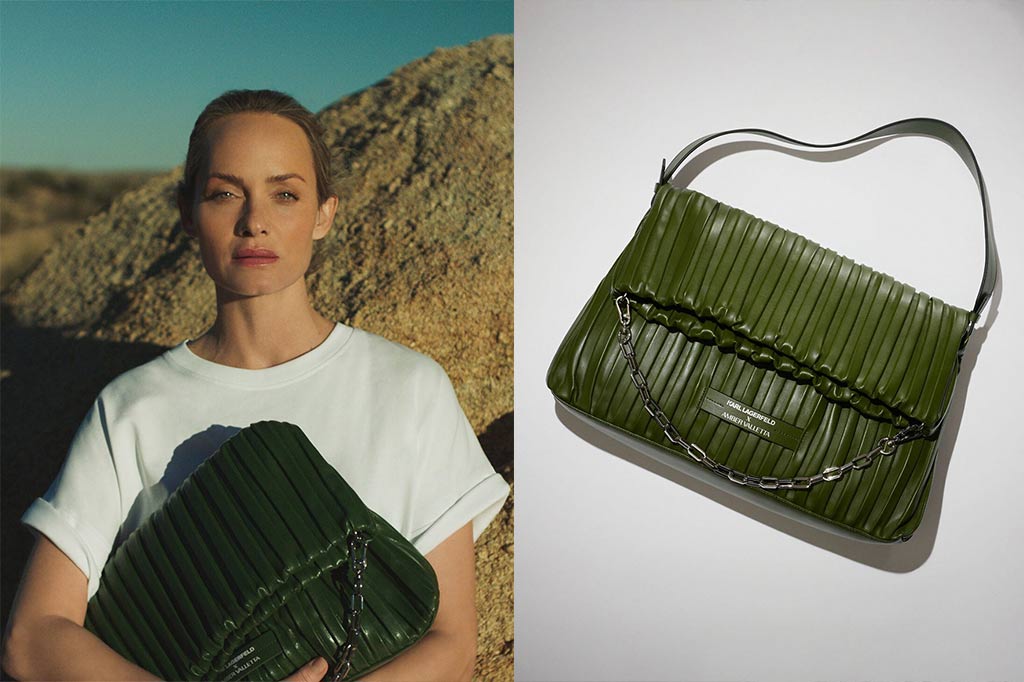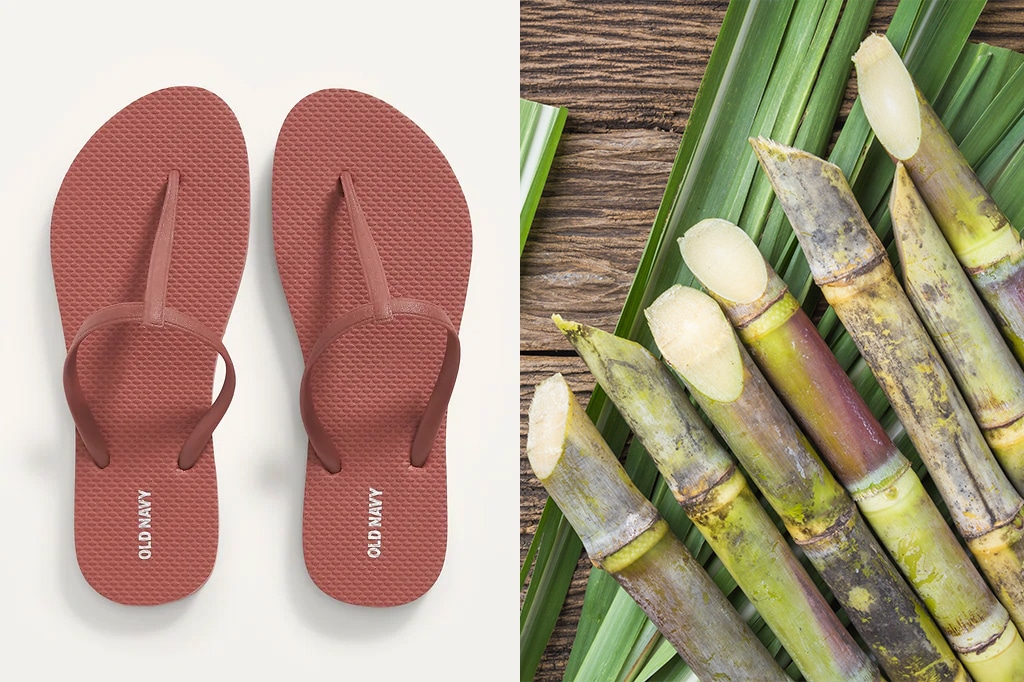Last week, luxury fashion house Karl Lagerfeld presented its first collection made with vegan cactus leather.
In a partnership with supermodel and sustainability advocate and entrepreneur Amber Valletta, a personal friend of the late Karl Lagerfeld they’ve created “Desserto”, a vegan leather made from “nopal” (prickly pear cactus) by Mexican entrepreneurs Adrián López Velarde and Marte Cázarez.
Though Lagerfeld liked using fur in his fashion collections, Valletta’s interpretation of Lagerfeld’s designs features a sustainable cactus leather version of the iconic K/Kushion bag which comes in a dark green or black hue (colored with organic pigments) in a pleated or seamless design.
The collection also features a GRS (global recycle standard) cotton version of the K/Kusion bag and toiletry bag, along with a wallet and cardholder made from award-winning Desserto. “This collaboration shows that we don’t have to sacrifice great style to responsibly made fashion,” Valletta said.
The Lagerfeld x Amber Valletta collection price tag is between $58 to $470 and available in exclusivity on the Karl Lagerfeld website and on the e-commerce platform Zalando.
Lagerfield joined an increasing number of fashion labels that decided to use new vegan leathers made from other sustainable materials in their collections. In 2020, biotechnology company Bolt Threads partnered with major fashion brands such as Stella McCartney, Adidas, and others to its Mylo vegan leather (made from mycelium, the fast-growing root-systems of mushrooms). Last month, McCartney became the first designer to showcase Mylo in two concept pieces: a bustier and trousers. Another company in the mycelium space, MycoWorks is working with luxury brand Hermès to release a new version of its Victoria handbag made using mycelium-based Sylvania.
Outside of the luxury designer realm, other fashion companies are now using plant-based leather made from a vast line of materials such as wine industry waste, pineapples, recycled plastic, and other alternatives to animal leather.








